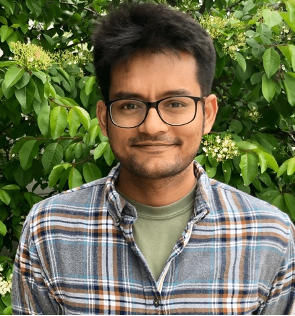Armour College of Engineering’s Department of Mechanical, Materials, and Aerospace Engineering will welcome Dr. Romit Maulik, an assistant computational scientist in the Mathematics and Computer Division at Argonne National Laboratory, to present a lecture, “Reduced-order Modeling of High-dimensional Dynamical Systems Using Scientific Machine Learning.”
The virtual seminar will take place on Thursday, January 27, 2022, from 12:45–1:45 p.m. Contact Elena Magnus for the seminar details and a link to join.
Abstract
This talk will showcase recent research that builds fast and accurate reduced-order models (ROMs) for various high-dimensional dynamical systems. ROMs are computationally efficient approximations of their full-order counterparts and are tasked with making accurate forecasts in time, given parameters and/or varying initial and boundary conditions. Our ROMs are constructed with several scientific machine learning strategies, specifically, those that rely on the coupling of deep learning and differential equations, to dramatically improve accuracy and time-to-solution for extended computational campaigns. Furthermore, in addition to canonical experiments, this talk will present results for several real-world applications of strategic importance. Some examples are building ROMs for geophysical forecasting from ship and satellite observation data and wind-turbine wake predictions from meteorological and LIDAR measurements.
Biography
 Dr. Romit Maulik is an Assistant Computational Scientist in the Mathematics and Computer Division at Argonne National Laboratory. He is also a Research Assistant Professor in the Department of Applied Mathematics at the Illinois Institute of Technology, Chicago. He was previously the Margaret Butler Postdoctoral Fellow in the Argonne Leadership Computing Facility. Before coming to Argonne, he received his PhD in Mechanical & Aerospace Engineering at Oklahoma State University. His research interests are centered around scientific machine learning algorithm development for various computational problems arising in engineering, geophysical, and fusion applications.
Dr. Romit Maulik is an Assistant Computational Scientist in the Mathematics and Computer Division at Argonne National Laboratory. He is also a Research Assistant Professor in the Department of Applied Mathematics at the Illinois Institute of Technology, Chicago. He was previously the Margaret Butler Postdoctoral Fellow in the Argonne Leadership Computing Facility. Before coming to Argonne, he received his PhD in Mechanical & Aerospace Engineering at Oklahoma State University. His research interests are centered around scientific machine learning algorithm development for various computational problems arising in engineering, geophysical, and fusion applications.
